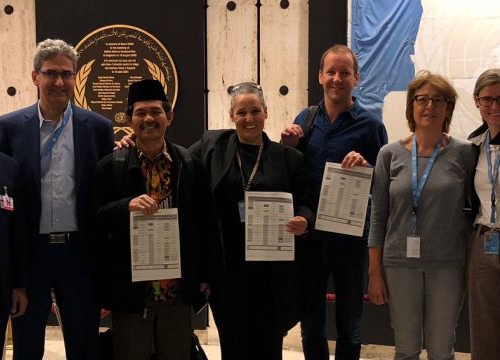A Major Step towards a Better Protection of the Rights of Peasants
28 September 2018
On Friday 28 September, the United Nations Human Rights Council (HRC) adopted by vote (33 in favour, 3 against and 11 abstentions) the UN Declaration on the rights of peasants and other people working in rural areas (UN Declaration).
‘This adoption is a major step towards a better protection of the rights of peasants and other people living in rural areas worldwide: this is essential as they represent 70 percent of people living in extreme poverty and 80 percent of the world’s hungry’ underlines Dr Christophe Golay, Special Adviser on Economic, Social and Cultural Rights at the Geneva Academy and Coordinator of our research project on the rights of peasants.
‘The adoption of the UN Declaration is the outcome of more than ten years of work by social movements, civil society organizations, experts, and academic institutions like the Geneva Academy’ he adds.
From the Right to Seeds to the Right to Land and Other Natural Resources
While many of the rights of peasants enshrined in the UN Declaration have already been recognized at national, regional and international levels, it is the first time that they are all enshrined in a single instrument.
‘The UN Declaration includes and defines key human rights for peasants, including the right to seeds, the right to land and other natural resources, and the right to food sovereignty’ stresses Dr Adriana Bessa, Senior Research Fellow at the Geneva Academy.
‘As human rights are higher order norms in international law, these rights should have precedence over property regimes or trade agreements, such as those negotiated at the World Trade Organization. States should, therefore, revise their national laws and international treaties accordingly’ she adds.
Ten Years of Academic Support to the Negotiation in Geneva
The Geneva Academy was involved, via dedicated research, in the preparatory work that led to the negotiation of a UN Declaration (2008-2012) and in the negotiation itself (2013-2018).
‘We’ve been supporting the process from the beginning via legal advice given to states and other stakeholders on key issues that were negotiated, as well as via the organization of expert seminars and conferences to debate ongoing challenges’ recalls Dr Christophe Golay. ‘Our publications have been key to advance the negotiations, as they clarified the content of certain rights and have been used widely by negotiators’.
Towards the Implementation of the UN Declaration
After its adoption by the HRC, the UN Declaration will have to be adopted by the UN General Assembly.
‘While this will probably happen before the end of this year, we will already start working on the UN Declaration’s implementation with a first expert seminar on 31 October at the UN in Geneva, co-organized with the Federal department of Foreign Affairs of Switzerland, the Permanent Mission of Bolivia to the UN in Geneva, and the Friedrich-Ebert Stiftung’ stresses Dr Christophe Golay.












